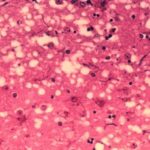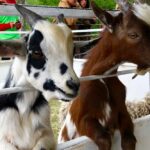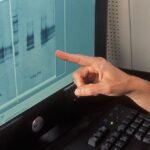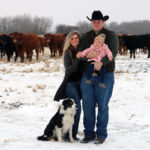Updated –– Canada’s first case of BSE since the country achieved “negligible risk” status for the brain-wasting cattle disease isn’t expected to affect trade in Canadian beef. The Canadian Food Inspection Agency said Friday it has notified the World Organization for Animal Health (OIE) of a case of “atypical” bovine spongiform encephalopathy (BSE) in an […] Read more

‘Atypical’ BSE shows up in Alberta cow
Spontaneous case won't affect Canada's 'negligible risk' status, CFIA says

U.S. to lift BSE-related rules off sheep, goat imports
New scrapie-specific rules take effect next month
U.S. restrictions that have hindered that country’s imports of live Canadian sheep and goats, going back to the start of the BSE crisis in 2003, are set to be scrapped and replaced with rules applying specifically to scrapie. The U.S. Department of Agriculture’s Animal Plant and Health Inspection Service (APHIS) on Friday published a new […] Read more

Brazil plays down BSE risk in suspect cases in people
Sao Paulo/Rio de Janeiro | Reuters — Brazil’s agriculture ministry said that two cases reported on Thursday of a neurodegenerative disorder in patients in Rio de Janeiro state were not related to beef consumption, tamping down fears of possible BSE causing human illness. Federal biomedical institute Fiocruz, which is investigating the possibility of bovine spongiform […] Read more

China’s buyers expect Brazil’s beef back soon despite BSE cases
Beijing | Reuters — Chinese beef importers said Monday the suspension of exports by top supplier Brazil due to two cases of BSE has had no immediate market impact, with some still making purchases in anticipation of a quick resumption of trade. Brazil said on Saturday it had confirmed two cases of ‘atypical’ bovine spongiform […] Read more

Brazil’s ag ministry investigating suspected BSE case
Evidence suggests 'atypical' BSE, source says
Sao Paulo | Reuters — Brazil’s agriculture ministry said Wednesday it was investigating a suspected case of bovine spongiform encephalopathy (BSE) in the country, according to a statement. An industry source told Reuters, on condition of anonymity, that the suspected case occurred in the southeastern state of Minas Gerais. The ministry said such investigations are […] Read more

Singapore clears all Canadian beef for import
Country first to lift BSE-era restrictions under new status
Canada’s new official international status as a “negligible risk” country for bovine spongiform encephalopathy now has its first recognition from a beef-importing nation. Singapore has approved the Canadian Food Inspection Agency’s certificate for exports of all Canadian beef, including beef offal, with no restrictions on the age of the cattle from which the beef was […] Read more

OIE ruling turns page on BSE in Canada
Canada's BSE status upgraded to 'negligible risk'
The international body overseeing countries’ animal disease control measures has assigned Canada the lowest level of risk for bovine spongiform encephalopathy (BSE) — a move which stands to help clear away lingering trade barriers against Canadian beef. The World Organization for Animal Health (OIE) on Thursday announced it has delivered “negligible risk” status for BSE […] Read more

Nearly two decades on, BSE class-action lawsuit goes to trial
The trial is expected to last until late June and it may be next year before a verdict is handed down
Reading Time: 3 minutes A long-awaited class-action lawsuit which could award Canadian ranchers and dairy farmers reparations for damages caused from bovine spongiform encephalopathy (BSE) is finally before the courts. The class-action lawsuit against the federal government, initially launched in 2005, centres around cattle imported from the U.K. and Ireland from 1982 to 1990, when Ottawa banned the importation […] Read more

Canada clears step toward ‘negligible risk’ BSE status
OIE delegates to vote in late May, CFIA says
The international committee that reviews countries’ requests for animal health status on specific diseases has called for Canada to level up on its status for BSE. The Scientific Commission of the OIE (World Organization for Animal Health), which last met virtually over Feb. 1-12, has recommended to OIE delegates that Canada’s application seeking “negligible risk” […] Read more

What was learned from BSE and what we’re learning now
Veteran producers and younger ones offer their thoughts and insights during this stressful time
Reading Time: 6 minutes Like the BSE crisis of 17 years ago, COVID-19 came without warning and pulled the ground out from underneath cattle producers almost overnight. Those who lived through those days say lessons learned from that time apply today, but there are also some important distinctions between that crisis and the pandemic. Arno Doerksen was chair of […] Read more

